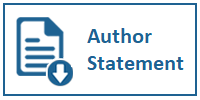Gender and Digital Public Relations: Who Gets Benefits?
DOI:
https://doi.org/10.31937/ultimacomm.v13i1.1998Abstract
Public relations professionals have been dominated by females since they have good communication skills and abilities in persuading and engaging in the conversation and listening the stakeholders to build and harmonize relationships them. However, male public relations practitioners dominate in the top positions since they have been participated in the managerial roles while female are in the technical roles. In the organization, female public relations practitioners face inequalities in social, professional, and economic areas and they also find it difficult to achieve higher position because the traditional patriarchy is still strongly practiced. It harder for them to break this barrier. Family and children, on the other hand, become big considerations for females to climb the higher position since it will give bigger responsibilities. Moreover, the massive development of digital technologies provides more opportunities for female public relations professionals to intensively engage with the stakeholders. On the other hand, these technologies bring privilege for males since they are more digital technical skills. To compete with males in digital public relations, females should enhance their digital skills, wisely manage their time, learn to take new challenges making them one step ahead, and actively participate in every organizational activity to voice their ideas and straighten up false assumptions and misconceptions about females. Meanwhile, males should be versatile public relations professionals in the digital era by combining masculine and feminine values to find the best public relations practices.
Downloads
Downloads
Published
How to Cite
Issue
Section
License
Ultimacomm Jurnal Ilmu Komunikasi allows readers to read, download, copy, distribute, print, search, or link to its articles' full texts and allows readers to use them for any other lawful purpose. The journal allows the author(s) to hold the copyright without restrictions. Finally, the journal allows the author(s) to retain publishing rights without restrictions
1. Authors are allowed to archive their submitted article in an open access repository
2. Authors are allowed to archive the final published article in an open access repository with an acknowledgment of its initial publication in this journal















